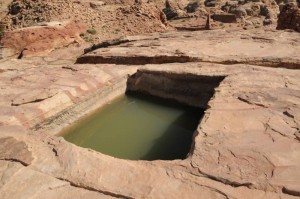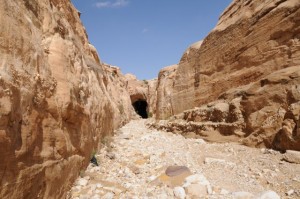In the Pacific Northwest and Northern CA we have been experiencing flooding, soil erosion and landslides. Mind you, this is a land living with serious drought and water resource issues.
I continue to question why new government buildings, cemented or asphalted over parking lots do not have mandatory catch basins or underground cisterns that could slowly release the water back into the local aquifer.[/su_column]
Private home constructions could also be amended to store such water. I find it curious that one historic home I used to work at had such a built in brick cistern in the basement. Sequim WA. happens to be a desert when it comes to rainfall and back in 1885 it was imperative to catch whatever you could.
I do not mean to imply that ‘collecting’ this water would prevent flooding. Eight inches is a damn lot to bottle up, but the droughts will continue and storing this water is something to consider. If Bermuda can do this why can’t we? Unless we have a major plague event the population will continue to grow and so will the cementing over of land that once allowed rainwater to peculate down into the groundwater.
I am not talking about buckets or 50 gallon collection barrels but real buried cisterns like the Romans or ancient cultures such as the Nabataeans of the Middle East. People who lived in deserts seem to have realized the importance and value of water in a far wiser manner than we moderns.
By reducing runoff perhaps we wouldn’t have the erosion problems or landslides and in the doing we might ‘bank’ some of that water for farming, gardening, industry and yes for washing the tush. There remains one big problem with this simple idea. GOVERNMENT. Diverting or storing water is actually prohibited by many jurisdictions who claim that they OWN that water, not the property owner.
Time to make a change in that. I hope you promote this idea and work hard to reclaim your property and acreage rights. What falls upon it belongs to you, then the landowner downstream and last and least of all to the damn Public Utility Commission. Right now, anyone who owns a piece of property also owns the rights to drill for oil or natural gas, dig for minerals or sink a well for water; all of the natural resources on that land are yours to use. The limit on those rights is “reasonable use.”
Returning to public ownership: My interpretation is that the state or Utility commission would have to purchase the right to the water on your land in order to protect it for others.
Most of these ancient water technology pictures came from this site:Flood bypass tunnel built by the Nabataeans:I would LOVE to get more links to this topic as I would expand on this important issue. My father WW11 in Libya recounted his amazement of underground water basins with connective infrastructures. I have done searches on this but have found nothing. Quats ????
Underground connections from the Pyramids to the Nile and Mayan Chultuns also come to mind. Ancient wars erupted between Mayan tribes that would continue for hundreds of years and some of these involved water as will wars of the future.
Ancient Cambodia and Thailand also had hydrology projects that might put California to shame. The Angkor Empire may have collapsed due to a major climate shift that occurred in the 1300s or early 1400s may have also contributed to changing the dominant authoritarian rule in the region. Today India and Pakistan fight over Kashmir, the birthplace of their great rivers.
“Kashmir is the source of many rivers and tributaries in the Indus River basin. This basin is divided between Pakistan, which has about 60 percent of the catchment area, India with about 20 percent, Afghanistan with 5 percent and around 15 percent in China.”
(C) Herb Senft 2015



Hi there, I log on to your blog daily. Your writing style is awesome, keep it up!